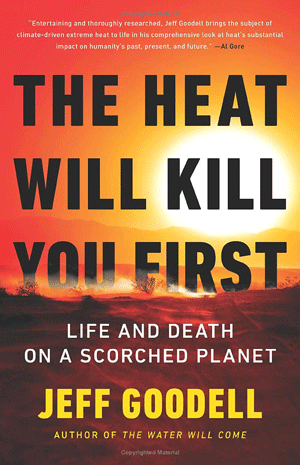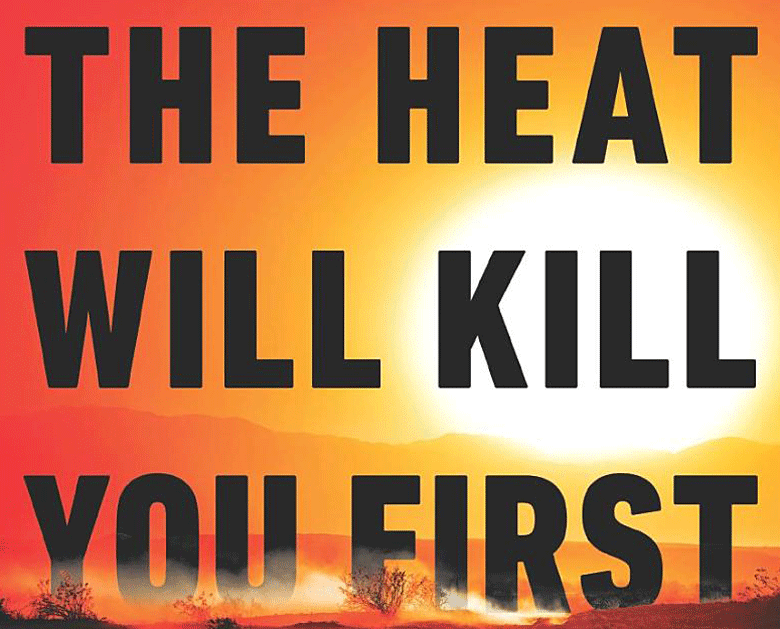The Heat Will Kill You First: Life and Death on a Scorched Planet
By Jeff Goodell, Little, Brown and Company (2023)
Spare me, you’re thinking. Please, not another book on climate change. Greenland’s last iceberg hasn’t even calved, and already we’re awash in Doomsday books about climate. Not one more. Please.
Maybe you can judge a book by its cover. Or at least by its title. This new and insightful analysis by veteran climate science writer Jeff Goodell can be judged by its cut-to-the-chase title: The Heat Will Kill You First: Life and Death on a Scorched Planet. The premise of Goodell’s thoroughly researched insights and layman friendly prose is simple: Heat is a lethal force that impacts every living cell on the planet.
“My goal is to convince you to think about heat in a different way,” Goodell writes. “The kind of heat I’m talking about here is not an incremental bump on a thermometer or the slow slide of spring into summer. It is heat as an active force, one that can bend railroad tracks and kill you before you even understand your life is at risk. In the long run, extreme heat is an extinction force. All life has a temperature limit.”
“In the long run, extreme heat is an extinction force. All life has a temperature limit.”
Goodell reinforces the reality that the oceans are the main driver of Earth’s climate system. While every second the seven seas may be busy absorbing the equivalent of the heat of three nuclear bombs, oceans store heat for later release, not to reverse it. Until now, he points out, oceans have been the “hero of the climate crisis” by absorbing 90% of the additional heat generated by the global burning of fossil fuels over the past 200 years. And counting.
Not even 20 years ago, shrimp were sold for a dollar a pound in brown paper lunch bags along Downeast Maine’s highways, critters so fresh from the sea most were alive and kicking. No more.

“As fish and other species migrate to cool waters or die off from temperature changes, there can be big impacts on local fisheries,” Goodell writes. “Just ask the cod fishermen in Alaska, or shrimpers in the Gulf of Maine, who have been wiped out by rapidly warming waters in the Atlantic.”
A basic premise and lingering conundrum of science is the more researchers know, the more there is to know. That’s especially true of understanding the structure, physics, and chemistry of the oceans. While oceans may cover 70% of the planet, they remain largely unmapped and mostly unexplored. Scientists know far more about the surface of the moon than they know about the vast, mountainous seafloor terrain below the surface of Earth’s oceans.
Climate scientists, meanwhile, are busy learning more and more each day about how heat impacts marine dynamics.
“Extreme heat is a force beyond anything we have reckoned with before,” Goodell contends. “It may be a human creation, but it is godlike in its power and prophecy. Because all living things share one simple fate: if the temperature they are used to—what scientists call their Goldilocks Zone—rises too far, too fast, they die.”
Tom Walsh is an author, academic, journalist, and science writer now based in landlocked Minnesota.





